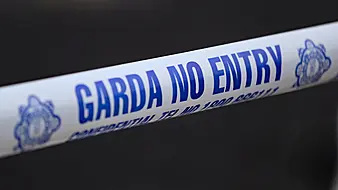Prosecutors have upheld their decisions not to take action against 24 Sinn Féin politicians who attended a huge funeral for a former IRA leader in Northern Ireland during the pandemic.
The Public Prosecution Service initiated an internal review of the decisions after receiving three formal requests to do so, amid the intense controversy that followed its announcement that there would be no prosecutions for the scenes at Bobby Storey’s funeral last June.
Around 2,000 people lined the streets of west Belfast to pay their respects to the high-profile republican at a time when strict Covid-19 rules on public gatherings were in place.
Among those in attendance were senior Sinn Féin figures, including Stormont Executive ministers such as deputy First Minister Michelle O’Neill whose responsibility it was to set to the region’s coronavirus regulations.

The funeral became arguably the most controversial incident of the Covid-19 pandemic in Northern Ireland.
In their original decisions not to prosecute the 24 Sinn Féin politicians, which were announced in March, prosecutors cited a lack of clarity around Stormont’s health regulations as one of the main reasons any case would be likely to fail.
Police engagement with the funeral organisers ahead of the event was identified as another factor in the PPS’s decisions not to prosecute for breaches of the regulations.
The review was conducted by PPS senior assistant director Marianne O’Kane.
Ms O’Kane, who was not involved in taking the original decisions, was assisted by obtaining the advice of senior counsel independent of the PPS.
Following the review, she said it remained of the view of the PPS that its test for prosecution was not met in respect of any offence on evidential grounds.

Ms O’Kane cited the same two factors, lack of clarity over the regulations and advance police engagement with the organisers, as the reasons any prosecutions would be unlikely to succeed.
“My consideration of this matter was conducted independently of the original decision-making team within the PPS,” she said.
“It involved a careful analysis of events leading up to Mr Storey’s funeral and on the day, against the context of complex and fast-changing regulations.
“Having taken into account the advices of both the original senior counsel and a second senior counsel who was instructed to advise at review stage, I have concluded that the test for prosecution is not met on evidential grounds.
“This is on the same basis as the original decisions.
“Both the lack of clarity and coherence within the regulations at that particular point in time, and the policing approach in the lead up to the funeral and on the day presented difficulties which the prosecution would not be able to overcome in the context of criminal proceedings.
“I should add for clarity that the basis for the decision is not that ignorance of the law is an excuse.
“Rather, the point is that the Regulations themselves were confused and incoherent and that this posed a particular difficulty in the context of an offence where a defence of reasonable excuse is provided.”
Impartial
Ms O’Kane said she recognised the “significant public interest” in the case and in the PPS decision-making and review processes applied to it.
“I can understand how difficult it is for many to reconcile the crowd scenes captured so publicly at the funeral of Mr Storey with the outcome that no prosecutions are directed for any breach of the Regulations,” she added.
“Whilst I appreciate concerns that what occurred was at least against the spirit of the law and public health guidance, the potential for prosecutions can only be assessed in light of the criminal law in force at the particular point in time.
“The PPS can only commence a prosecution when there is a reasonable prospect of conviction, and that threshold was not reached in this case.
“I would seek to assure those who requested reviews of the decisions and the wider public that these new decisions were reached after a very careful, impartial and independent consideration of the relevant law and the available evidence.”

Director of Public Prosecutions Stephen Herron, who oversaw the original decisions, said: “The decisions issued by the PPS on March 30 2021 prompted an intense public and political debate which understandably raised questions about the effective and fair application of the rule of law.
“I want to reassure the public that I listened very carefully to this debate and was sensitive to all views raised.
“The PPS exercises a quasi-judicial function by independently and impartially applying the test for prosecution.
“On occasions decisions may not be well received by some, depending on perceptions.
“However, my priority is to ensure that all decisions are taken with integrity, without fear or favour, following careful analysis of all the available evidence.
“We have clear decision-making processes and review procedures, as set out in our Code for Prosecutors.
“Those processes have been followed at all times throughout our consideration of the individuals reported in connection with this funeral.
“Our independence and need for objectivity in decision-making does not mean that we cannot recognise the depth of public feeling and hurt.
“I recognise the sacrifices that have been made by many in seeking to adhere to the coronavirus regulations and public health guidance.
“Those sacrifices have been most painful for many families who faced restrictions when making funeral arrangements for a loved one.
“I hope people can take some comfort in having made an important contribution to curbing the spread of Covid-19.”







